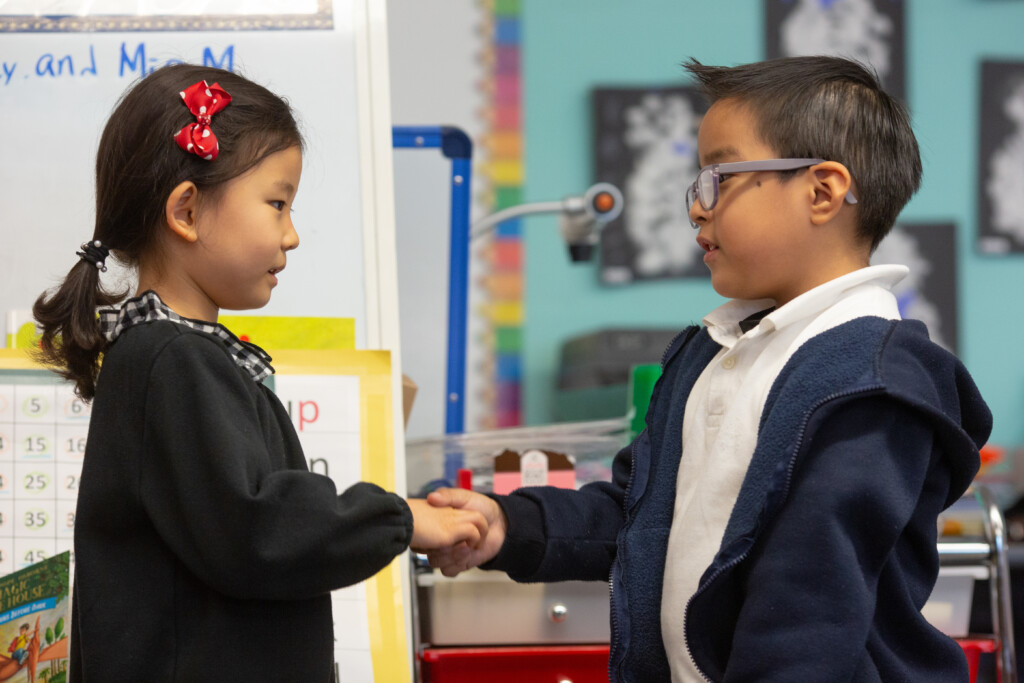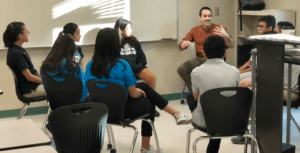Culturally Relevant Social and Emotional Assessments for Multilingual Students
Key Points
-
Engaging multilingual learners and their families through culturally adapted assessments fosters a more supportive learning environment and can better support students’ social and emotional development.

By Evelyn Johnson
Multilingual learners (MLs) face unique challenges as they navigate learning a new language and culture while also pursuing academic learning. An increasing number of multilingual students arrive in the U.S. also having endured trauma resulting from war, instability, or persecution in their home countries. Language barriers and cultural differences can further exacerbate students’ challenges, underscoring the critical need for educators to address their social and emotional needs.
Though MLs comprise nearly 10% of the school-age population, the most widely-used social-emotional skills frameworks and programs currently lack an intentional focus on how to support multilingual students’ unique strengths and challenges. To foster MLs’ academic success and well-being, educators must consider students’ cultures, languages, assets, expectations, norms, and life experiences when integrating social-emotional practices. All students thrive when they are validated and supported to achieve their goals, empathize with others, build relationships, and make responsible decisions.
Strong evidence shows that social-emotional skills support students’ well-being, however, a one-size-fits-all approach can undermine cultural heritage, limiting the potential benefit to multilingual learners. Culturally relevant assessments offer a crucial starting point for meeting the needs of multilingual students. These assessments not only help educators gain a deeper understanding of their students but also foster a more inclusive and supportive learning environment that allows students to have the same experience as their peers with support in their native language.
Creating Culturally Relevant Assessments
The first step in creating culturally relevant assessments is ensuring accurate translation. Best practices recommend a certified translation company that will create a consensus translation that considers regional dialects. Guidance from the International Testing Commission suggests that translation alone is not enough to guarantee the cultural relevance of an assessment, particularly for constructs influenced by language and culture. A comprehensive cultural review by native speakers can bring to light constructs or items that might pose potential issues. This expert cultural review can be done by native speakers of the relevant language who have expertise in education or child development.
Next, studies investigating measurement invariance evaluate the comparability of the translated and English versions of the assessment to show whether the assessment functions similarly across groups. Invariance suggests that comparisons can be made across groups and that results can be interpreted in similar ways.
At Aperture Education, we have used this process to create several translated versions of the DESSA Student Self-Report social and emotional assessments, including Spanish and Chinese, two of the most common languages other than English used in the K-12 school system. After translating the DESSA into these languages, we worked with expert reviewers to determine the cultural relevance of the items and constructs included. Reviewers in both languages agreed that the items and constructs of the DESSA were culturally meaningful for Spanish and Chinese-speaking students.
However, the reviewers also noted some items that could warrant additional review when interpreting an individual student’s results. For example, a reviewer noted that the item, “believe that you can make a difference”, is less emphasized in Chinese cultures because there tends to be a greater focus on collective efforts to make a difference.
We used the results of our expert reviews to prepare guidance for educators who work with multilingual students. We included notes like the example above to help educators interpret assessment results more thoughtfully and to better understand their students’ needs. Furthermore, it can pave the way for conversations that help educators delve deeper into their students’ cultures, languages, and unique life experiences.
Community Engagement
Strong family and community engagement is a key component of effective SEL programs. Families new to the U.S. benefit from inclusive practices, and sharing culturally relevant social and emotional assessments. Some school sites using culturally adapted versions of the student self-report also choose to share copies of the assessment in the relevant language with families. Sharing assessment items in their native language helps families feel included and can support their engagement in schools’ SEL efforts. It can also help families discuss the social and emotional skills included in the assessment and consider how to support students’ development of these skills at home.
Other sites have not only shared the assessments but also invited families to complete and share the assessment of the student with the school. This promotes active engagement, and can also provide the school with a more holistic assessment of a students’ social and emotional skills. If there are notable differences in how certain items are rated for example, a community liaison or educator can reach out to families to learn more.
Social-emotional skills play a crucial role in students’ academic success and well-being. Adopting culturally relevant assessments and inclusive community engagement practices can ensure that the unique strengths and challenges of multilingual students are addressed. Engaging multilingual learners and their families through culturally adapted assessments fosters a more supportive learning environment and can better support students’ social and emotional development.
For more information on what a culturally responsive classroom could look like, listen to a conversation with Alex Red Corn and a conversation with Hollie Mackey.
Evelyn Johnson is the Vice President of Research & Development for Aperture Education and Professor Emeritus of Early and Special Education at Boise State University.







0 Comments
Leave a Comment
Your email address will not be published. All fields are required.